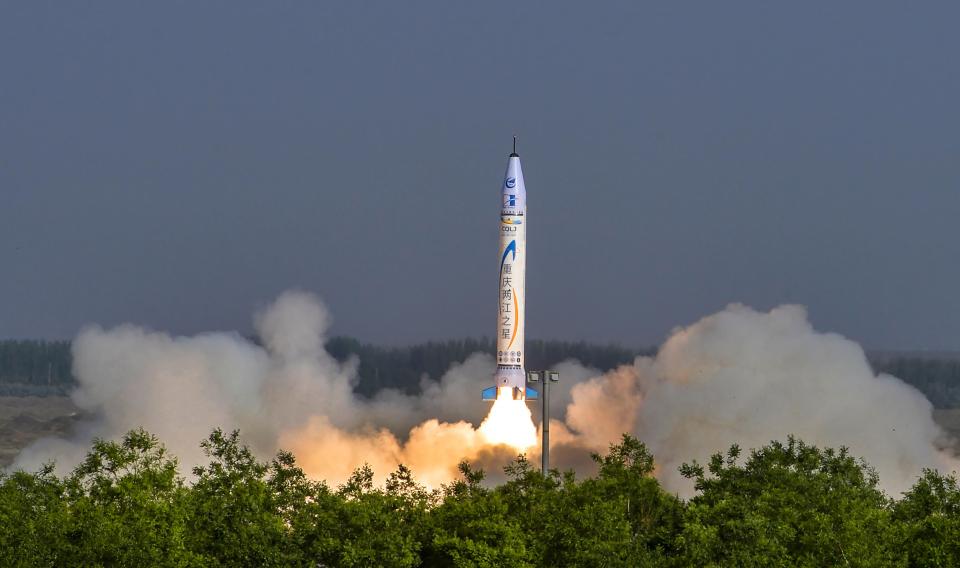The successful launch of two privately-developed rockets demonstrates that private companies are becoming a player in the private spaceflight game. While the Chinese government has historically dominated the country's space industry, the government issued guidelines in 2014 opening the sector up to limited private sector involvement. Recent successes suggest more private companies should be allowed to take part, an
yicai.com editorial argues.
On May 17, China’s first private sub-orbital booster, the “Chongqing Star of Two Rivers,” lifted off successfully from a base in northwest China. Developed by the private Beijing company OneSpace, the launch of the 30-foot-tall and 8-ton vehicle was the second successful rocket test by a private Chinese company. The events mark an important moment in the history of China’s private business development, yicai.com editorializes.
Chinese private businesses were not allowed to develop rockets prior to a 2014 State Council document, the editorial notes. The policy which encouraged private capital to enter the commercial aerospace field sparked a favorable response from the market.
OneSpace has a testing agreement with nearly a dozen top domestic universities, which can provide fast-response, customized, low-cost and highly reliable flight testing services for aviation and aerospace technologies, yicai.com reports.
For private businesses to go further in the sector, favorable policies, funding and importantly, talent, are needed. Universities and research institutes have a tremendous amount of talent and a significant body of research to draw from, putting them in a good position to collaborate with business to commercialize their results, yicai.com notes.

 Old Version
Old Version